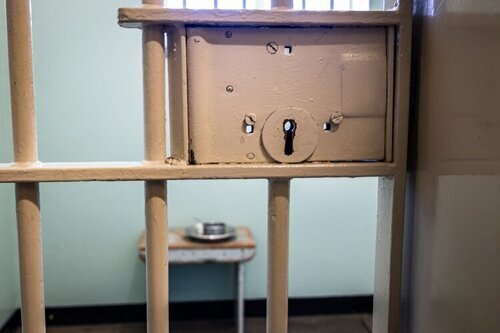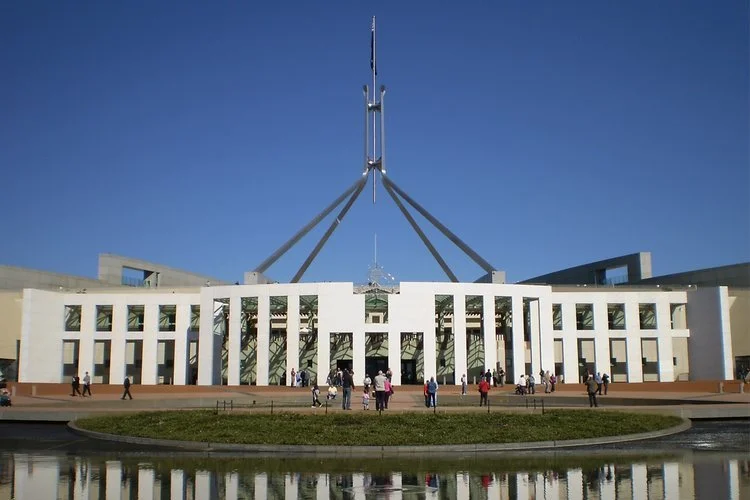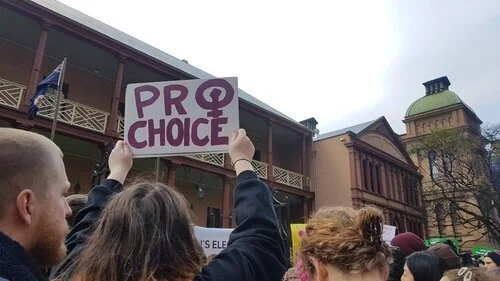Secret evidence, secret hearings and secret judgements. Each step in the prosecution of Bernard Collaery comes with another layer of opacity. If it were not so serious, the accumulation of secrecy in this case would be comedic.
Read MoreAs Australia begins to reconnect with the world, this paper highlights the restrictions that continue to prevent travel for many members of the Australian community and for refugees whose resettlement has been delayed, and proposes a pathway for the federal government to ensure no one is left behind.
Read MoreWe live in difficult times. On top of the climate crisis, a once-in-a-century pandemic and rampant global inequality, democratic norms continue to be eroded at home and abroad.
Read MoreGlobal Warning: the threat to climate defenders in Australia by the Human Rights Law Centre, Greenpeace Australia Pacific, and the Environmental Defenders Office, reveals how the unregulated political influence of the fossil fuel industry is driving political inaction on climate change and the repression of those calling for action.
Read MoreThe dire warnings from some about Victoria’s proposed new pandemic laws are mostly wrong or overblown. There are important areas where the bill needs fixing but overall, it’s a big improvement on the current laws.
Read MoreWith the COVID-19 pandemic continuing and Victoria’s current state of emergency set to expire, Victoria is developing a new pandemic law to support the ongoing management of COVID-19 and any future pandemics.
Read MoreWith the next federal election not far away, the Human Rights Law Centre has released a new step-by-step guide to help charities comply with electoral law.
Read MoreWith the next federal election not far away, charities and community groups are thinking about what advocacy they want to do. Under Commonwealth electoral laws, some advocacy spending and donations may need to be publicly disclosed, and your organisation may need to consider adjustments in how you use or track donations. This guide is designed to step you through your obligations under these laws.
Read MoreThe sorry saga of the prosecution of Bernard Collaery, an eminent Canberra lawyer, has seen a number of unhappy chapters. His prosecution, for Collaery’s alleged role in exposing Australia’s espionage against friendly neighbours Timor-Leste, is profoundly unjust.
Read MoreWhilst the special treatment experienced by the British and their descendants ensured their prosperity, the special treatment our people experienced entrenched our disadvantage, economic and social exclusion, poor health outcomes and shorter life expectancy.
Read MoreThe COVID-19 pandemic is a global human rights crisis which has caused widespread illness and millions of deaths and prompted often severe restrictions from governments to protect public health.
Read MorePrisons are Covid-19 tinderboxes and now we have seen case numbers connected to prisons across NSW explode. You couldn’t get a more dangerous breeding ground for the virus - indoors, poor ventilation, lack of sanitation, overcrowded with little ability to physically distance.
Read MoreThe Australian Government is deliberately and systematically separating family members and preventing them from reuniting where one family member has sought asylum at Australia’s borders. Refugees are forced to make an unthinkable choice between their safety, their health and being with the ones they love.
Read MoreMining giant Rio Tinto is responsible for multiple human rights violations caused by pollution from its former mine in Bougainville. For 45 years, the Panguna copper and gold mine on the island of Bougainville was majority-owned by the British-Australian mining company, but in 2016 Rio Tinto divested from the mine, leaving behind more than a billion tonnes of mine waste.
Read MoreThe COVID-19 pandemic has required governments around the world to make difficult and high-stakes decisions. Most states across Australia have declared a state of emergency, giving governments and health officials broad powers to limit individual rights and freedoms in order to protect public health.
Read MoreAchieving human rights progress can be hard. It can take years and sometimes decades of advocacy, campaigning, strategy, suffering and sacrifice. Sometimes all that effort comes to nothing. Sometimes things go backwards despite our best efforts. Sometimes change happens, but the pace is far too slow.
Read MoreFor decades, women seeking abortion care in Australia have been targeted by anti-abortionists as they tried to walk to their doctor’s front door.
Read MorePeople are innocent until proven guilty, and bail means that the police can release a person from custody on the promise that they will go to court at a later date to face the charges alleged against them. If a person applies for bail and that application is denied, they are detained in prison until their court date.
Read MoreRecently, a report tabled in the Victorian Parliament by the Independent Broad-based Anti-corruption Commission uncovered serious and systemic wrongdoing in Victorian prisons.
Read MoreThe Government’s proposed new Governance Standard 3 could see charities shut down for speaking out.
Read MoreSitting in the magistrates court in Canberra this week, I felt like I was watching a scene from Franz Kafka’s The Trial – the famous novel in which a man is arrested and prosecuted by a mysterious authority for an unknown crime.
Read MoreSitting in the magistrates court in Canberra this week, I felt like I was watching a scene from Franz Kafka’s The Trial – the famous novel in which a man is arrested and prosecuted by a mysterious authority for an unknown crime.
Read MoreThe prosecution of Bernard Collaery, which returns to the ACT Court of Appeal today, is about right and wrong. It was wrong for the Australian government to spy on our neighbour Timor-Leste for commercial gain.
Read MoreAccording to the United Nations, World Press Freedom Day - marked today - is intended to serve "as a reminder to governments of the need to respect their commitment to press freedom."
Read MoreVictoria’s bail laws are broken and need to be fixed.
As the world marks International Women’s Day, which this year aims to challenge gender inequality, it is fitting to call out Victoria’s broken bail laws and the discriminatory impact they are having on women in our prison system.
Read MoreThe Human Rights Law Centre continued to support the work of the family of Yorta Yorta woman Aunty Tanya Day, who died in police custody in Victoria in 2017. Aunty Tanya was arrested for being drunk in a public place after falling asleep on a train and died after hitting her head in a police cell. The Coroner found that the checks conducted on Aunty Tanya while she was in the police cell were inadequate and that police had failed to take proper care for her health and welfare.
Read MoreIt’s easy for many of us living in a country like Australia to take our human rights for granted. For most of us, most of the time, Australia is a great place to live.
Read MoreAs we reach the end of 2020, four individuals – Bernard Collaery, Witness K, David McBride and Richard Boyle – are being prosecuted by our government. These whistleblowers spoke up in the public interest, and now face the very real prospect of jail time. If we want to live in a transparent, accountable democracy, that should trouble us all.
Read MoreOur ability to come together and speak out on the issues we care about is fundamental to our democracy.
Read MoreRoutine strip searching involves forcing children as young as ten to remove their clothing in front of adult prison guards on a regular basis.
Read MoreAs we reach the end of 2020, four individuals – Bernard Collaery, Witness K, David McBride and Richard Boyle – are being prosecuted by our government. These whistleblowers spoke up in the public interest, and now face the very real prospect of jail time.
Read MoreEveryone deserves to be safe in the face of COVID-19, but immigration detention facilities in Australia are creating unacceptable health risks.
Read MoreLaws currently being considered by the Tasmanian government would allow the practice of routine strip-searching of kids to continue. If it’s the government’s intention to enact laws that protect kids, rather than cause them more harm, this opportunity to finally get the law right shouldn’t be squandered.
Read MoreSolitary confinement is a cruel practice that causes irreparable harm to the people who are subjected to this form of physical and sensory isolation. Governments must ban the archaic and inhumane use of solitary confinement in Australian prisons.
Read MoreAustralia and the world face a public health emergency in coronavirus (COVID-19), but little has been said about the people in our prisons and youth detention centres.
Read MoreIt’s clear there have been serious failures in Victoria’s hotel quarantine program and that infection control procedures must improve to protect the community. But what’s not been discussed enough is how quarantine needs to improve for the safety and welfare of the people being detained.
Read MoreIn response to the COVID-19 public health emergency, most states across Australia declared a state of emergency and brought in new laws imposing severe restrictions on civil liberties and an increase in policing powers.
Read MoreThe Victorian Government is requiring people in Melbourne and the Mitchell Shire to wear a face covering or mask when leaving their home to help stop the spread of COVID-19. This explainer seeks to debunk claims that the requirement breaches people’s human rights.
Read MoreSilent prayer outside abortion clinics can be particularly harmful to women trying to access healthcare. The objects of the Health Care (Safe Access) Amendment Bill 2020 (SA) (‘the Bill’) would be completely undermined by an amendment that authorises silent prayer within a health access zone, by allowing anti-abortion activists to invade the privacy and threaten the wellbeing of patients seeking abortion care.
Read MoreWhile politicians say that police are committed to taking a "sensible approach", history has shown that too often marginalised groups are disproportionately punished through an expansion of policing powers. In particular, people living with a disability, women escaping family violence and those experiencing homelessness may be hardest hit. In addition, increased powers - and police discretion - open the way for racialised and discriminatory policing, too often experienced by Aboriginal and Torres Strait Islander people.
Read More





































